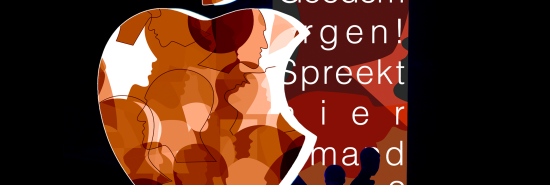
Speaking the language of the locals
Rob Long
When you’re in a foreign country, it’s considered rude to just march into a shop and immediately speak English. You’re supposed to act sheepish and awkward and begin timidly, and to try to communicate using a random collection of the few words you happen to know in the local language along with English words pronounced in a nonspecific foreign accent. “Pardonnez-moi, Madame, but avez-vous any aspirin aspeerini or some other quel-que chose parce-que because je have twisted mon ankle on a loose paving stone dans le rue? Por favor?”
The French have a reputation for being chilly and insulted when people do this, but the truth is they enjoy watching that awkward little dance. They will let you struggle for a few minutes, and just before helplessness overtakes you, they will step in with, “Would you prefer to speak English?” And not in a Pepe Le Pew accent, either. These days, the world is filled with people who have watched hours and hours of Friends and Game of Thrones. Go to a foreign country these days and you’re likely to hear a lot of vaguely English accents peppered with 1990s American slang. It’s actually a lovely mix.
JASON STANLEY AND THE WOKE THEORY OF LANGUAGE
I lived in the Netherlands when I was a child — from about age 8 to age 11 — and I still speak a little Dutch. It’s rusty, of course, and mostly made up of words and phrases I learned on the playground or on the hockey team, so not terribly useful when trying to buy a USB-C cord that connects to a regular USB port. But, you know, I do OK. On a recent trip to Amsterdam, though, I wasn’t prepared for how quickly the Dutch had adjusted to the new global monolanguage. I was, in fact, in the Apple Store trying to buy some USB connectors — I lose them, I forget them, they’re always the wrong ones, I explode with profanity and curses on the sadists at Apple Inc. — and doing my very best to speak Dutch to the guy with the lanyard and the T-shirt.
My accent is pretty good, even if my vocabulary is limited. And I say this with respect, of course, but it’s nevertheless a fact that Dutch is not a complicated language. (The Dutch aren’t a complicated people, either, but that’s the kind of thing that gets you into trouble when you say it.) The Dutch language is a series of Lego pieces — some nouns get snapped together to form new nouns, and past and future tenses can be communicated with a series of small grunts before or after the verb — so even when you think you’re speaking it wrong, you’re probably speaking it right.
“Would you prefer to speak in English?” was the question after I had painstakingly (and, I think, pretty flawlessly) explained my needs in Dutch.
“Nee, nee,” I said cheerfully. And then I explained that I had lived in Holland — Ik woonde in Eindhoven toen ik elf jaar oud was — and that I’d like to practice my Dutch.
He gave me a confused expression. “Why?” he asked, as if I had just made the most outlandish proposal. “Everybody speaks English,” he said, and gestured around the store where, in fact, nearly everyone was speaking English. He told me that nearly all of his classes at the local university were taught in English, that he spoke to his friends in a combination of English and Dutch, and that “nobody speaks Dutch. Not even the Dutch.”
Good American manners required that I put up some resistance to this. We’re supposed to do an awkward language dance, I wanted to tell him. I’m supposed to struggle to show my embarrassment at my lack of worldly sophistication, and then you’re supposed to come to my rescue after that very important kabuki. Cultural differences are to be celebrated, and the language of the indigenous people is something I’m supposed to butcher in a show of respect. But he had already handed me the right USB cords and held out his little thingy for me to tap my card on.
As I left the store, I couldn’t resist giving him a hearty tot ziens! to which he rolled his eyes and said, “Have a good rest of your day, dude.” Just like they do at the Apple Stores in the United States, and, I now know, all over the world.
CLICK HERE TO READ MORE FROM THE WASHINGTON EXAMINER
Rob Long is a television writer and producer, including as a screenwriter and executive producer on Cheers, and he is the co-founder of Ricochet.com.
